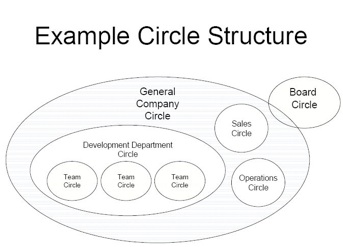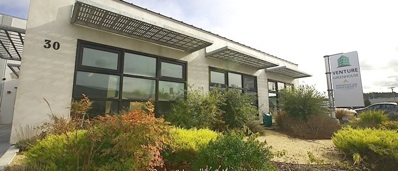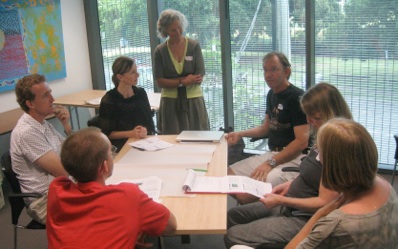








Home | About Us | Contact Us | Store

2008, Living Mandala
creative services by: 360 Degrees
In Association With
The Sociocracy Consulting Group
Instructors
John Schinnerer
Shiloh Boss
Jay Ma
Course Overview
Effective, adaptable, thriving organizations…is the vision we have in common.
Sociocracy is on the cutting edge of helping to maximize individual and group potential and make the world a better place through excellence in organizational design.
Systems for decision-making and governance can support your organization by valuing and improving what already works and transforming what doesn’t.
-
•Build Capacity
-
•Improve Outcomes
-
•Create Harmony
-
•Reduce Overhead
-
•Distribute Authority
-
•Work On What Matters
Enable your teams to lead their own work. Value and use change to innovate rapidly. Generate an organization that can run itself.
Course Description
Do you want to:
-
•Learn to become more effective together?
-
•Get things done and have more fun?
Good governance is no accident. We create it, by design.
This foundational training gives you essential tools and experience for applying whole systems governance design in your existing or forming organization. The workshop will include:
-
•Introduction to values, principles and practices of sociocracy (a.k.a. dynamic governance)
-
•Consent decision making – implementing equivalence in decisions
-
•Circle meetings, roles, and elections
-
•Double linking – how to scale equivalence, consent and transparency
-
•Workflow and operational effectiveness
-
•Whole systems group facilitation and leadership
This workshop will be highly interactive, with experiential practice sessions and exercises, presentation of essential information, and time for participant questions and feedback. Participants will engage directly with real-life governance structure, process, issues and solutions.
This workshop is equivalent to "Foundations of Sociocracy” - Dynamic Self‐Governance: Become More Effective Together as offered by The Sociocracy Consulting Group.

What is Sociocracy?
A New Power Structure For Ethical Governance
Sociocracy is a method of governance that ensures inclusiveness, accountability, transparency, and productivity. It creates a structure that both involves all members of the organization in policy decision making and produces a strong and efficient decision-making structure.
Sociocracy is rule of an organization or government by the "socii," that is, people who regularly interact with each other and have a common aim. (The prefix socio- comes from "socius," the Latin term for companion or colleague.) Each socius has a voice that cannot be ignored in the managing of the organization.
In contrast, democracy is rule by the "demos," that is, a collection of people who may or may not know each other and have only general aims in common -- such as the running of a country.
An autocracy is rule by an "auto" or single person.
The typical business in the North America is an autocracy. The majority of the "demos" can ignore the minority of the "demos" as they make their decisions. An "auto" can choose to ignore the rest of the organization.
Sociocracy can be regarded as a fractal structure. That is why, once the basics are understood, the procedures at the highest level are as clear as the procedures at the grassroots level. It also doesn't require very many levels to include a great number of people.
Background
Beginning around 1970, Gerard Endenburg developed a management and governance method called Sociocracy while managing his electrical engineering corporation, Endenburg Electrotechnik, in the Netherlands.
As an engineer, Endenburg was educated in the physical sciences and found the art of management to be unclear and unproven in its ability to create a harmonious and productive workplace. Building on his own experiences and education as well as related work by others, and using his company as a laboratory, he experimented by applying the principles of cybernetics, the science of communications and control, to the management of his business. In the process, he developed a unique method of organization.
Sociocracy is also known as Dynamic Governance, reflecting the method’s roots in system dynamics, cybernetics and systems design. These disciplines are ingeniously combined to create a comprehensive and elegant feedback system that guides decision-making and governance. This optimizes an organization’s ability to respond to internal and external pressures while maintaining security and stability.
Just as principles of system dynamics apply to all systems, Dynamic Governance applies to all organizations. It clarifies missions and goals and provides benefits that are specific to the environment in which it is applied.
Contact
For questions and more information regarding the course
e-mail: education@livingmandala.com or
call: (707) 634-1461
Tuition & Registration
Light beverages and snacks will be provided. Participants are responsible for their own lunch. You can bring your own lunch, or opt to purchase a catered lunch for an additional $10.
Standard Tuition: $345
Early Bird: $295 (available for the first 10 registrants)
Intro to Governance By Design: $25 or $30 at the door. Friday even only, from 6pm- 8:30 pm.
-
*There will be a small registration fee in addition to the above prices.
To Register for the Workshop Click Here.
Principles of Dynamic Governance
Dynamic Governance is based on a combination of sociocratic principles that provide a solid foundation for effective, transparent, and enjoyable governance and decision-making. These principles are:
Consent – to ensure that organizational policies allow everyone to do their jobs well, policy decisions are made by consent. Consent means there are no “paramount and reasoned” objections to a policy. “Paramount” objections arise when a proposed policy conflicts with the organization’s mission and aims. “Reasoned” objections are those that can be clearly explained to all involved – so they can be addressed and resolved!
Circles – a circle is a semi-autonomous, self-organizing entity within an organization. Circles meet to determine policies in their domain of responsibility, using consent decision-making. Circles reflect operational structure, and include all roles and activities within an organization. Responsibility for leadership is distributed, so that individuals are included in the decisions that directly affect their work.
Double Linking – In an effective organization, transparent feedback (information) needs to flow freely along relevant paths between circles. These paths are provided by double-linking – two people who are full members of both circles. This supports policy-making that reflects the needs of all those affected by a decision.
These three principles and their applications (see below) produce exceptionally strong, adaptable, and productive organizations. Dynamic Governance also embraces and integrates other best management practices, including transparency and ongoing organizational learning.
Applications – The above principles of Sociocracy are applied in diverse ways to create the structures and processes of Dynamic Governance. A few examples of such applications are:
Elections – circles elect people to functions, tasks and roles by consent and with transparency. Elections are essentially selection by consent.
Membership – Adding or removing members of a circle.
Performance reviews – for circle members, by their fellow circle members.
Ultimately, all an organization’s policies towards carrying out their vision, mission and aims are done through applications of these foundational principles.

Snail Mail
To complete your registration via mail (which is preferred), register on-line and send the full name of the course registrant(s) with a check or money order out to "Living Mandala" and mail to:

Living Mandala
Attn: Governance By Design
30 Castro Ave
San Rafael, CA
Refund Policy
Cancellations up to 1 week before the course before May 17 will be refunded, excluding a $25 processing fee. No refunds are given after May 17 but may be credited towards a future course with Living Mandala (minus the processing fee). Not all courses apply.
Site Details - The the Venture Greenhouse

The Venture Greenhouse of Dominican University of California is a pioneering, early-stage business incubator providing an intensive acceleration process for growing companies that have the potential for significant environmental and social benefits. Located in San Rafael, California, the 5,000 sq. ft. “innovation engine” houses up to 12 companies at a time, with the goal of graduating companies within one year.
Inspired by Dominican’ s groundbreaking Green MBA program, the Venture Greenhouse is a growth accelerator for budding social and environmental entrepreneurs, a learning laboratory for the University’s business students, and a community resource for innovators, investors, sustainability advocates and new ventures. The Venture Greenhouse is the leading innovation and venture creation catalyst addressing critical social and environmental issues, to support humanity thriving within the planet’s ecological means.
Their mission is to accelerate the success of environmentally and socially beneficial ventures by providing a broad array of resources to entrepreneurs from Dominican University of California and beyond. The Venture Greenhouse has a globally collaborative network of enterprises, professionals and partners who contribute to vibrant and sustainable economic development for Marin County and the Bay Area.


Instructors






Governance by Design
Organizing Ourselves To Get Things Done
May 24 - 26, 2013
Venture Greenhouse, San Rafael, California


